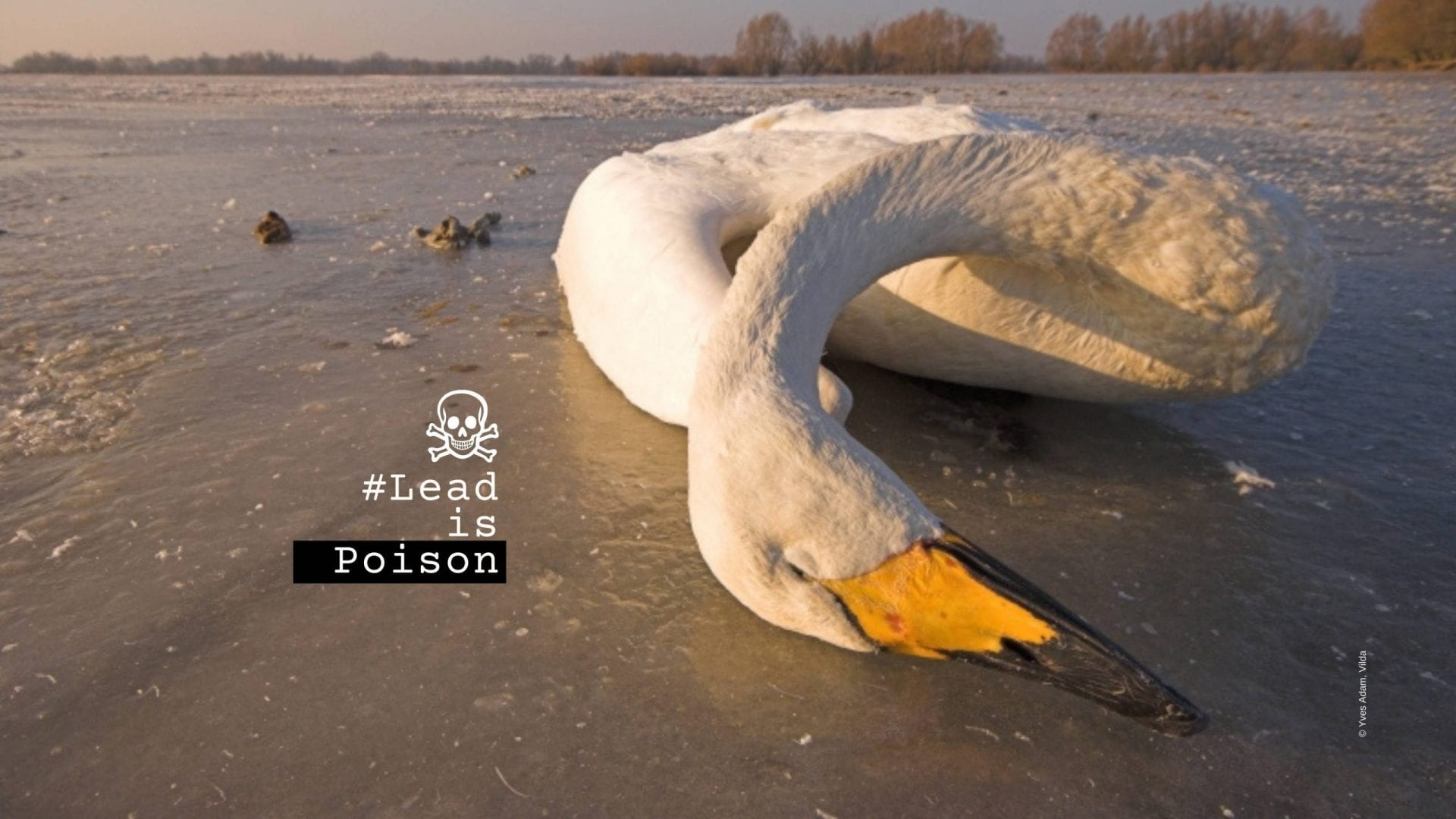BirdWatch Ireland warmly welcomes the fact that, earlier this month, the use of lead shot ammunition in wetlands was made illegal across all 27 EU countries, as well as in Iceland, Norway, and Lichtenstein. The law comes into force following a 2-year period given to the EU member states to prepare for the change.
National authorities will now be required to enforce a ban on the carrying and use of lead shot in, or within 100 metres of, wetlands, as defined by the Ramsar convention: “areas of marsh, fen, peatland or water, whether natural or artificial, permanent or temporary, with water that is static or flowing, fresh, brackish or salt, including areas of marine water the depth of which at low tide does not exceed six metres.”
With this law in place, the lives of an estimated 1 million waterbirds which currently die of lead poisoning across the EU will be saved and the perpetuation of extreme poisoning of wetland wildlife will be tackled once and for all. Exposure to lead can also have severe consequences for people should they be exposed to it, especially children.
Lead shot cartridges consist of hundreds of tiny, round lead projectiles that hunters spray out of their shotguns. They use it to hunt waterbirds and other small animals, in wetlands and elsewhere. It is estimated that hunters have been polluting EU wetlands with more than 4,000 tonnes of lead shot annually, despite the existence of competitively priced alternatives, such as non-toxic steel shot.
Lead shot is particularly problematic for waterbirds that ingest lead pellets, mistaking them for grit: small particles of stone or sand. Birds swallow small pieces of grit to act like teeth in their gizzard, a specialised organ they use for grinding up their food. The grit helps break down hard foods, such as seeds.
The ban will also decrease the secondary poisoning of birds of prey and scavengers, which are regularly poisoned while eating prey contaminated with lead shot.
The BirdLife Partnership has been working to have this poisonous ammunition banned for more than 20 years.
Barbara Herrero, Senior EU Nature Policy Officer, BirdLife Europe:
“This is huge. Despite banning lead from paint, petrol and virtually everything else several decades ago, it was still allowed to poison our shared environment – even when alternatives exist. With this ban, the EU has addressed a significant part of the problem. We now call on EU countries to make sure the ban is enforced.”
Unfortunately, the ban does not go beyond wetlands. Lead ammunition in hunting and outdoor sports-shooting away from wetlands, as well as lead used in fishing sinkers and lures, will continue to poison the environment. But that can change soon. The European Chemicals Agency has been working hard on a second restriction which proposes a complete ban on their use. The BirdLife Partnership will continue to stand up to the ammunition industry and hunting lobby to ensure Europe has the non-toxic environment it deserves.


